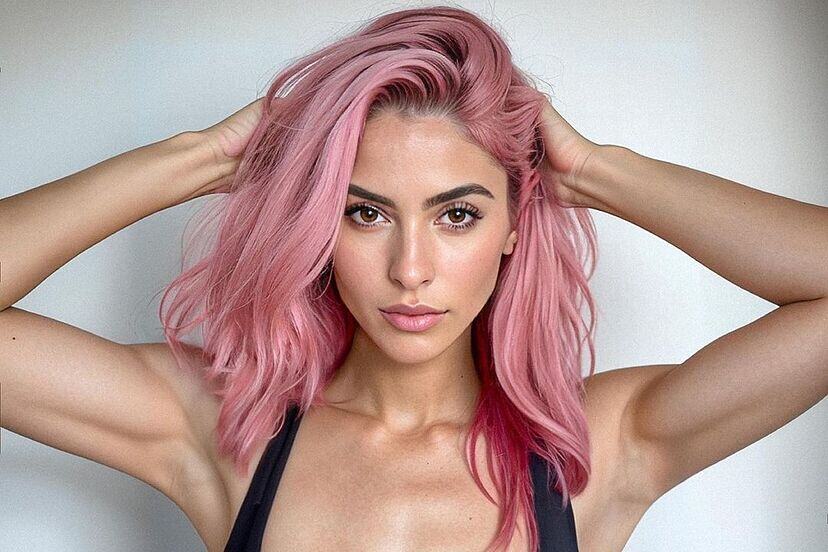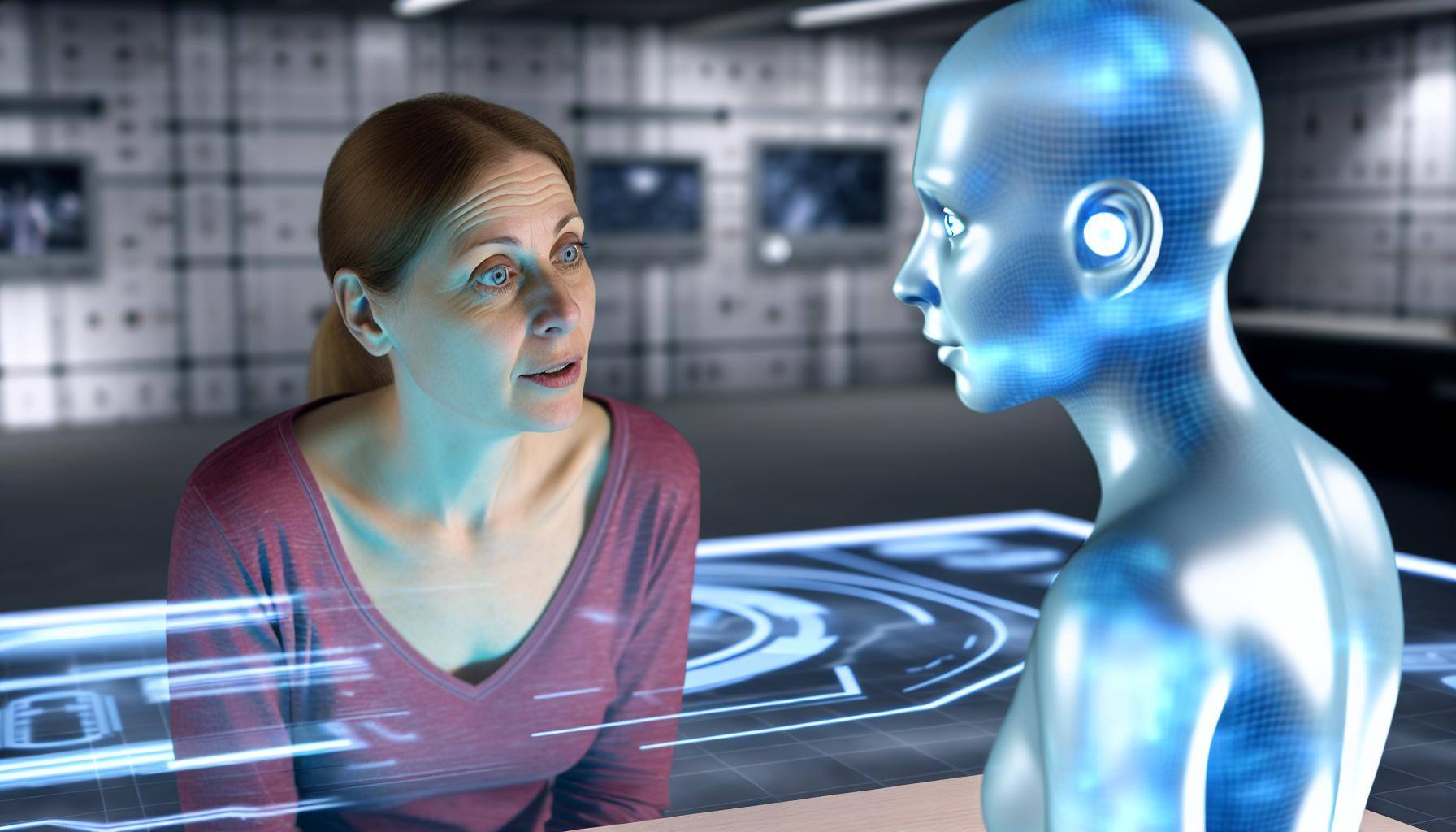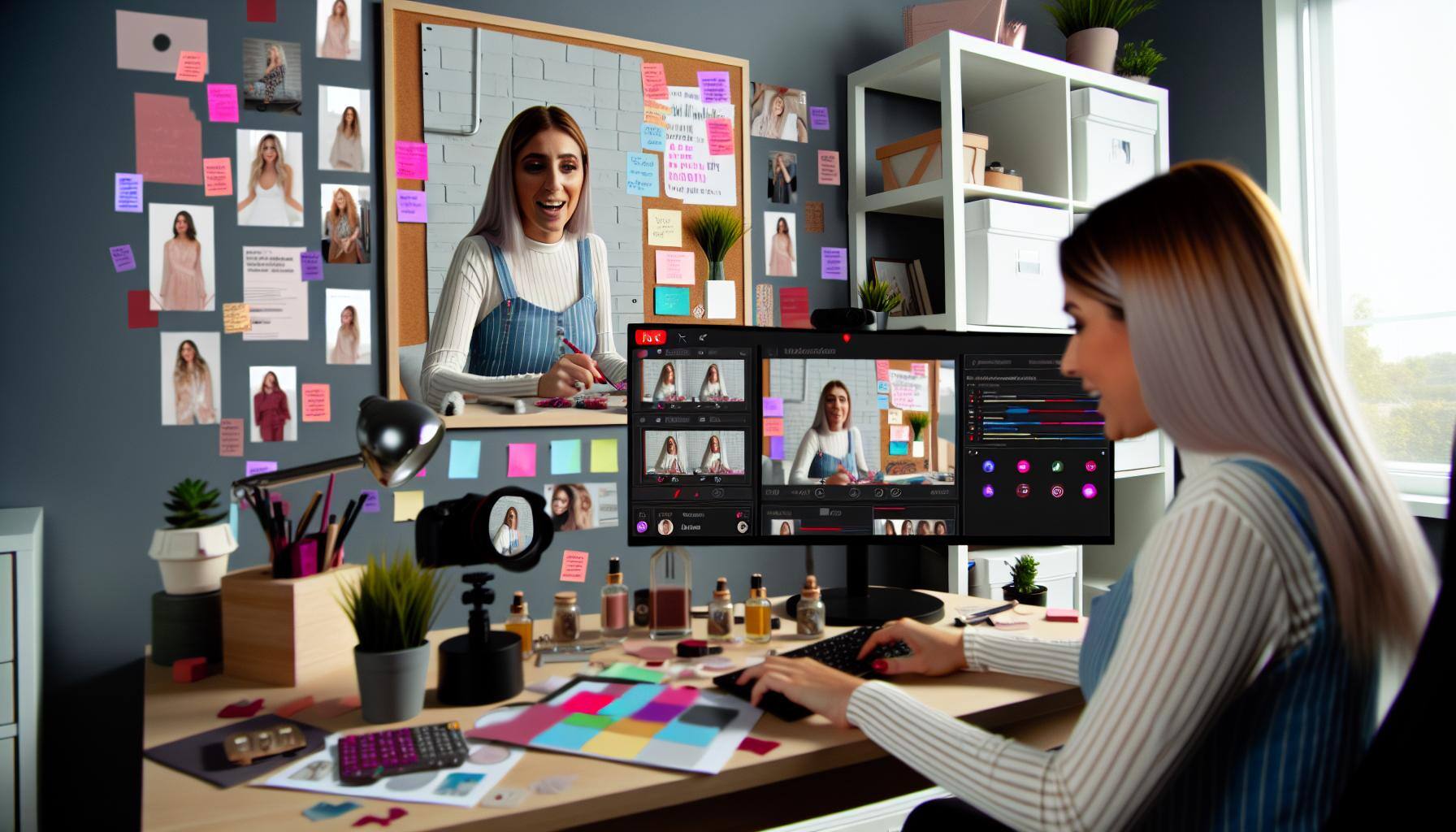7 min read
Who is Aitana Lopez Influencer?
What is an AI Influencer? An AI influencer is a Virtual persona or Virtual model or digital personality powered by artificial intelligence, designed...
4 min read
The Amazing Team at Virtual Marketer Max : Aug 14, 2024 10:00:00 AM
The world of social media and digital marketing has been revolutionized by the advent of virtual influencers. One of the most notable and intriguing figures in this new realm is Lil Miquela. With millions of followers on Instagram and collaborations with major brands, Lil Miquela has sparked widespread curiosity and debate. Is she real? How does she operate? This article delves into the phenomenon of Lil Miquela, exploring her creation, impact, and the broader implications of virtual influencers in the USA.
Lil Miquela, also known simply as Miquela, is a virtual influencer created by the Los Angeles-based startup Brud. She first appeared on Instagram in April 2016, presenting herself as a 19-year-old Brazilian-American model and singer. Miquela's creators designed her using computer-generated imagery (CGI), giving her a life like appearance that blends seamlessly with the real world.
Miquela's Instagram account showcases a mix of lifestyle photos, fashion shots, and promotional content. She interacts with her followers through comments and direct messages, just like any human influencer. Additionally, Miquela has released music, further blurring the lines between virtual and real-life personas. Her digital presence has made her a significant player in the influencer marketing industry.
Lil Miquela has collaborated with numerous high-profile brands, including Calvin Klein, Prada, and Samsung. These partnerships highlight the effectiveness of virtual influencers in reaching and engaging audiences. Brands are drawn to Miquela's unique appeal and the novelty of working with a digital entity. This trend reflects a broader shift in marketing strategies, where innovation and creativity are paramount.
Miquela's influence extends beyond commercial endeavors. In addition to her collaborations with brands, she has actively engaged in social and political discussions, using her platform to advocate for important causes such as Black Lives Matter and LGBTQ+ rights.
By amplifying these issues and promoting awareness, Miquela showcases the potential for virtual influencers to contribute meaningfully to societal conversations and effect positive change. Her involvement in activism not only demonstrates her commitment to social responsibility but also challenges traditional notions of authenticity and influence in the digital age. Through her actions, Miquela sets a new standard for virtual influencers, showing that they can be powerful agents for social change and progress.
The reception of Lil Miquela has been overwhelmingly positive, with her followers admiring her unique style, engaging personality, and captivating music. Fans are drawn to her digital presence, finding inspiration and entertainment in her virtual world.
However, as with any groundbreaking phenomenon, there are skeptics who raise valid concerns about the authenticity and ethical implications of virtual influencers like Miquela. These skeptics question the blurred lines between reality and virtuality, prompting important discussions about transparency and the impact of digital personas on the influencer landscape.
Despite the mixed reactions, Lil Miquela's undeniable success serves as a testament to the evolving landscape of digital media and the increasing acceptance of virtual influencers. Her ability to connect with audiences on a personal level, despite being a computer-generated entity, showcases the power of storytelling and creativity in the digital age. As the fascination with virtual influencers continues to grow, it is clear that Miquela has carved out a unique space in the hearts and minds of her followers, sparking curiosity and admiration in equal measure.
The rise of virtual influencers like Lil Miquela is a testament to the advancements in CGI and AI technologies. These technologies enable the creation of highly realistic and interactive digital characters, opening new possibilities for entertainment, marketing, and beyond. As technology continues to evolve, the line between virtual and real will become increasingly blurred.
The emergence of virtual influencers raises several ethical questions. Issues such as transparency, authenticity, and the potential impact on human influencers are critical considerations. It is essential for brands and creators to navigate these concerns responsibly, ensuring that virtual influencers are used ethically and transparently.
As the phenomenon of virtual influencers like Lil Miquela continues to gain traction, it becomes evident that they are not just a passing trend but a significant evolution in the realm of social media and digital marketing. The landscape is poised to see an influx of diverse digital personas, each with their own distinct characteristics and magnetism.
These virtual influencers are set to revolutionize marketing strategies, offering brands innovative avenues to captivate audiences, foster engagement, and propel brand growth in unprecedented ways. With their ability to seamlessly blend the boundaries between the virtual and real world, virtual influencers are reshaping the way brands connect with consumers, heralding an era where creativity and technology converge to forge powerful connections in the digital sphere. The rise of virtual influencers signifies a paradigm shift in the marketing landscape, ushering in a new era where the possibilities are limitless, and the only constant is innovation.
Lil Miquela represents a groundbreaking shift in the world of digital marketing and social media. Her blend of virtual and real elements has captivated audiences and brands alike, highlighting the potential of virtual influencers. As technology advances and the digital landscape evolves, virtual influencers will play an increasingly prominent role in shaping the future of marketing and entertainment in the USA.
For brands looking to explore the potential of virtual influencers, Virtual Marketer Max offers top-notch solutions to create and manage AI-driven Instagram influencers.
Recommended Readings,
Who is AI Influencer Milla Sofia?
Who is Aitana Lopez Influencer?
Lil Miquela is not a real person. She is a virtual influencer created using CGI technology by the startup Brud. Despite being digital, she interacts with her audience and collaborates with brands just like human influencers.
Brands benefit from collaborating with virtual influencers by leveraging their unique appeal and novelty. Virtual influencers can engage audiences in innovative ways, driving brand awareness and customer engagement.
Yes, there are ethical concerns related to transparency, authenticity, and the potential impact on human influencers. It is crucial for brands and creators to address these concerns responsibly and ensure ethical use of virtual influencers.
For more information on creating and managing virtual influencers, visit Virtual Marketer Max

7 min read
What is an AI Influencer? An AI influencer is a Virtual persona or Virtual model or digital personality powered by artificial intelligence, designed...

4 min read
Virtual humans, also known as virtual agents or AI avatars, are computer-generated characters that simulate human-like behavior and interactions....

4 min read
In the modern era, the rise of technology has revolutionized the way we perceive and consume content. With the advent of social media, a new breed of...